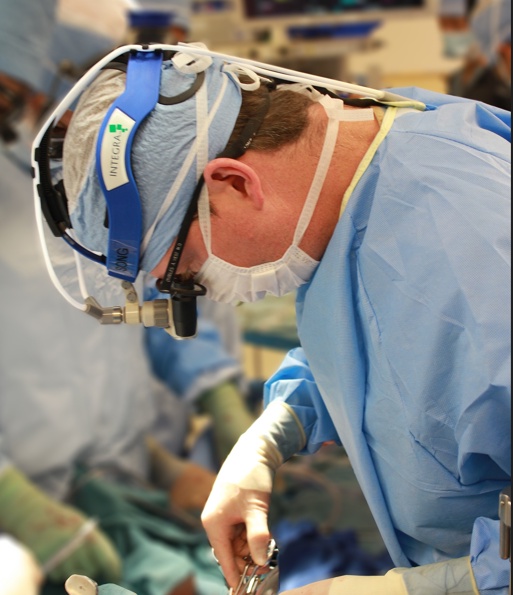Varicose veins, those enlarged and twisted veins commonly found in the legs, are often a result of weakened valves or vein walls, leading to impaired blood flow. When varicose veins begin to impact an individual's quality of life or overall health by causing symptoms or complications, varicose vein treatment is typically recommended. If your varicose veins significantly affect your daily activities or well-being, it is worth considering treatment options.
The following symptoms may indicate the need for varicose vein treatment:
Pain and Discomfort: Varicose veins can cause pain, aching, heaviness, and discomfort in the affected area. Treatment aims to relieve these symptoms and improve your overall quality of life.
Swelling and Inflammation: Varicose veins often lead to swelling in the legs, ankles, and feet. Inflammation of a varicose vein, known as superficial thrombophlebitis, can cause pain, redness, and swelling. If left untreated, it may lead to blood clot formation. If you experience swelling accompanied by redness, warmth, or tenderness, it could indicate inflammation or a more severe condition that may require treatment to alleviate symptoms.
Ulcers or Skin Changes: Varicose veins that result in skin discoloration, thickening, or the development of ulcers (open sores) indicate more advanced venous insufficiency and often require treatment. These signs suggest a more advanced stage of venous disease and necessitate medical attention. Treatment can prevent the progression of these skin changes and promote wound healing.
Bleeding: Although rare, varicose veins can occasionally rupture near the skin's surface, resulting in bleeding. If you experience significant bleeding or have difficulty stopping it, it is crucial to seek emergency medical attention. Additionally, the presence of blood clots in varicose veins requires immediate medical attention, as it can lead to serious complications like deep vein thrombosis. Treatment can prevent future bleeding episodes.
Cosmetic Concerns: While not medically necessary, some individuals seek varicose vein treatment for cosmetic reasons. Prominent veins may cause self-consciousness or dissatisfaction with their appearance.
When experiencing any of these symptoms or having concerns about your varicose veins, it is advisable to consult with a healthcare professional specializing in vascular conditions. They can evaluate your condition, consider the severity of symptoms, and recommend appropriate treatment options tailored to your specific needs.
Benefits of Varicose Vein Treatment:
Varicose vein treatment offers several benefits for individuals with symptomatic varicose veins:
Symptom Relief: Treatment aims to alleviate the pain, aching, heaviness, and discomfort associated with varicose veins, thereby improving your overall well-being.
Prevention of Complications: Varicose veins left untreated can lead to complications such as blood clots, skin ulcers, and bleeding. Treatment helps minimize the risk of these complications and their associated health problems.
Improved Circulation: Varicose veins are often indicative of poor circulation. Treatment helps restore proper blood flow by redirecting blood through healthier veins and reducing pressure on the affected veins.
Enhanced Appearance: Varicose veins may be a cosmetic concern for some individuals. Treatment options can help improve the appearance of your legs and reduce the visible signs of varicose veins.
Enhanced Comfort During Physical Activities: Varicose veins can make it challenging to engage in physical activities or prolonged periods of standing due to pain or discomfort. Treatment can enable you to participate in activities you enjoy without hindrance.
Prevention of Future Complications: Treating varicose veins early can help prevent the progression of the condition and the development of more severe symptoms or complications over time.
Understanding Laser Treatment:
Laser treatment is a medical procedure that utilizes focused light beams, known as lasers, to address various conditions and perform therapeutic and cosmetic procedures. By emitting intense, concentrated beams of light, lasers can selectively target specific tissues or cells in the body.
In the context of varicose veins, laser treatment is often referred to as endovenous laser ablation (EVLA) or endovenous laser therapy (EVLT). This minimally invasive procedure involves inserting a thin laser fiber into the affected vein through a small incision. The laser emits energy that heats and damages the vein, causing it to collapse and eventually fade away.
Advantages of Laser Treatment:
Laser treatment offers several advantages as an alternative to traditional surgical procedures for varicose veins:
High Success Rate: Laser treatment effectively seals off damaged veins, leading them to shrink and fade over time. It significantly improves symptoms associated with varicose veins, such as pain, swelling, and heaviness in the legs.
Minimal Scarring: Laser treatment involves small incisions, resulting in minimal scarring compared to traditional vein stripping surgery. This makes it a favorable option for individuals concerned about cosmetic outcomes.
Swift Recovery: The recovery period after laser treatment is typically shorter compared to traditional surgery. Most individuals can resume their normal activities within a day or two after the procedure, with only minimal restrictions. The outpatient nature of the procedure allows patients to quickly return to their daily routines.
Targeted Treatment: Laser treatment precisely targets the affected veins, delivering focused energy to seal them shut. This approach helps spare healthy tissues and reduces the risk of complications.
Reduced Pain and Discomfort: Laser treatment is generally well-tolerated and causes less pain and discomfort compared to traditional surgery. Local anesthesia is typically used to numb the area, minimizing any potential discomfort during the procedure.
In conclusion, varicose vein treatment is recommended when symptoms or complications associated with varicose veins impact an individual's quality of life or overall health. The decision to pursue treatment should be made in consultation with a healthcare professional specializing in vascular conditions. Laser treatment offers several benefits as a minimally invasive option for varicose vein treatment, including a high success rate, minimal scarring, quick recovery, targeted treatment, and reduced pain and discomfort.


No comments yet